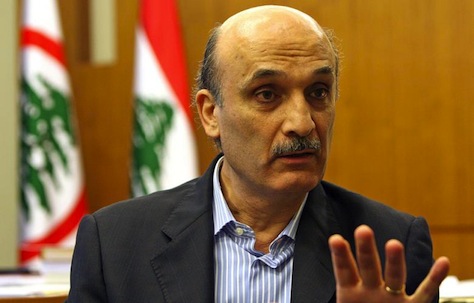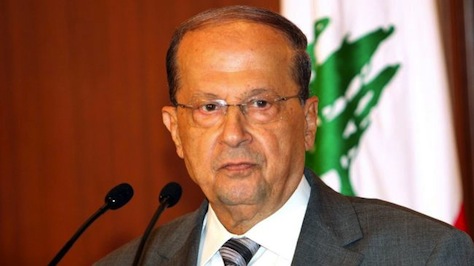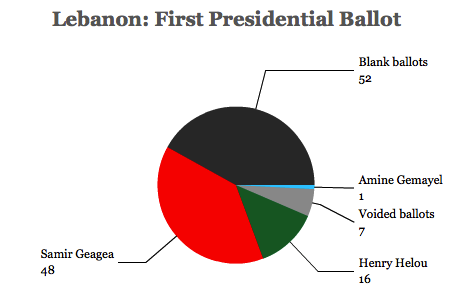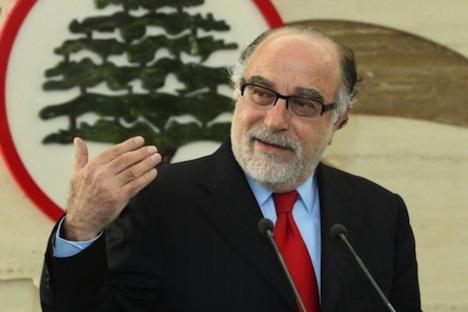
 With the term of Lebanese president Michel Suleiman set to expire on May 25, the country’s 128-member parliament will convene tomorrow, April 23, for the first of what will likely be weeks of voting and negotiating to select a replacement.
With the term of Lebanese president Michel Suleiman set to expire on May 25, the country’s 128-member parliament will convene tomorrow, April 23, for the first of what will likely be weeks of voting and negotiating to select a replacement.
Though the president has less day-to-day power over Lebanese governance, it’s a vital post at a time when national unity is stretched to its limits and Syria nears the third anniversary of the start of a brutal civil war that falls along precarious sectarian lines. Syria’s conflict has brought a massive wave of refugees into Lebanon, and it’s also caused significant unrest from Tripoli to Beirut, with some Shiite Lebanese intervening on behalf of the regime of Syrian president Bashar al-Assad and some Sunni Lebanese intervening on behalf of anti-Assad rebels.
Though Suleiman has only served as Lebanon’s president since 2007, his increasingly critical remarks against Hezbollah (حزب الله), the powerful social, political and military Shiite organization, have made it unlikely that he’ll win reelection. Hezbollah, among all of Lebanon’s political groups, has taken the boldest and most consequential steps into the Syrian war in support of Assad.
The presidential vote follows the successful formation of a new government in February, which itself followed ten months of difficult negotiations guided by Lebanon’s current prime minister Tammam Salam. The national unity government includes ministers from the ‘March 8’ bloc,* the ‘March 14’ bloc and top Druze leader Walid Jumblatt’s Progressive Socialist Party (الحزب التقدمي الاشتراكي), which has switched between the March 8 and March 14 camps throughout the past five years.
Under Lebanon’s complex confessional system, whereby 64 seats in Lebanon’s national assembly (مجلس النواب) are reserved each for Muslims and for Christians, the presidency traditionally goes to a Maronite Christian, the premiership to a Sunni Muslim and the speakership of the national assembly to a Shiite Muslim.
That means that the race will feature some of Lebanon’s most prominent Maronite leaders. But with a two-thirds majority required to win the presidency, no one believes that Lebanon will choose its next president anytime soon. (In the second round of voting, a candidate needs only a simple majority to win the presidency.)
Right now, the only major declared candidate is Samir Geagea (pictured above, top), the leader of the Lebanese Forces (القوات اللبنانية). For now, at least, Geagea is the candidate backed by the entire cross-confessional March 14 coalition. But Geagea isn’t the most uniting candidate, even within the March 14 camp. He’s unlikely to wield enough support, even in the second round, to win enough over votes from the March 8 coalition, which will likely cast blank ballots in tomorrow’s vote. The March 8 bloc’s top choice for the presidency will almost certainly be Michel Aoun (pictured above, bottom), the leader of the Free Patriotic Movement (التيار الوطني الحر), the most prominent Maronite group within the March 8 alliance.
As it stands, the first round is more important for establishing the relative strength of each bloc than for electing a president outright — to that degree, both Geagea and Aoun (to the extent casting a blank vote is casting a blank vote for Aoun) represent stalking horses for the March 14 and March 8 camps. Continue reading Lebanon’s parliament considers presidential choice tomorrow →

![]()



 With the term of Lebanese president Michel Suleiman set to expire on May 25, the country’s 128-member parliament will convene tomorrow, April 23, for the first of what will likely be weeks of voting and negotiating to select a replacement.
With the term of Lebanese president Michel Suleiman set to expire on May 25, the country’s 128-member parliament will convene tomorrow, April 23, for the first of what will likely be weeks of voting and negotiating to select a replacement.